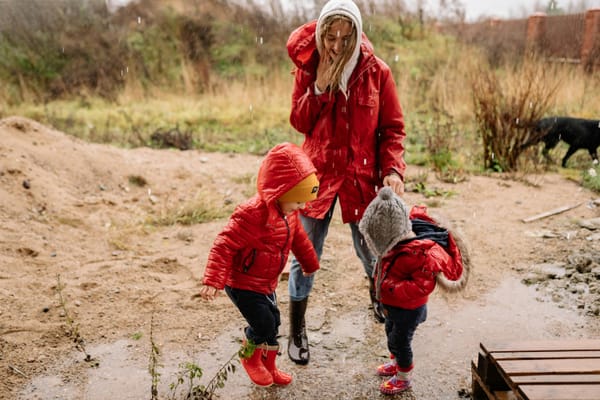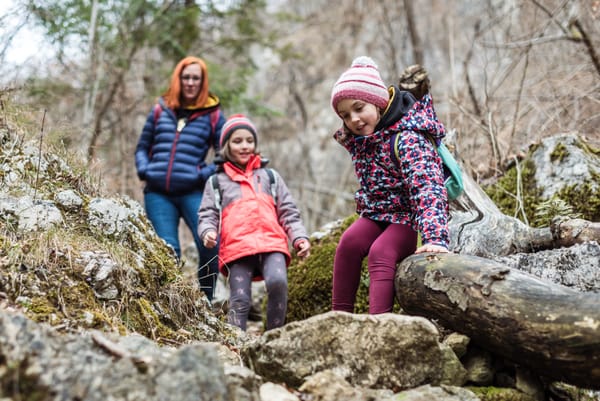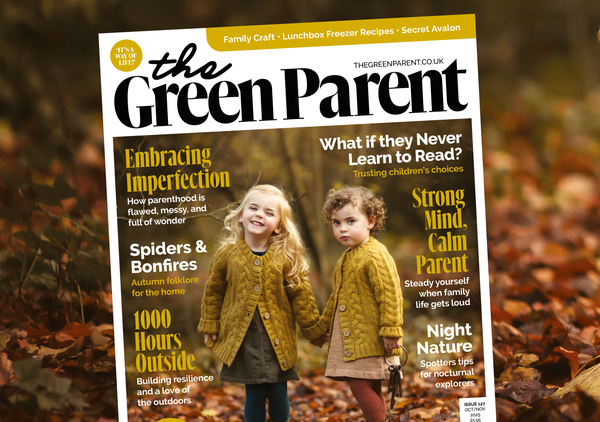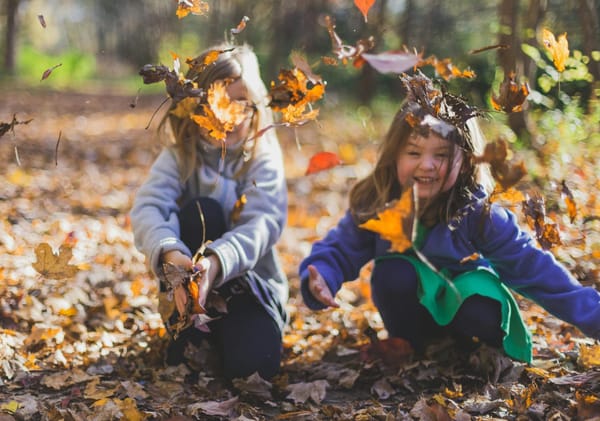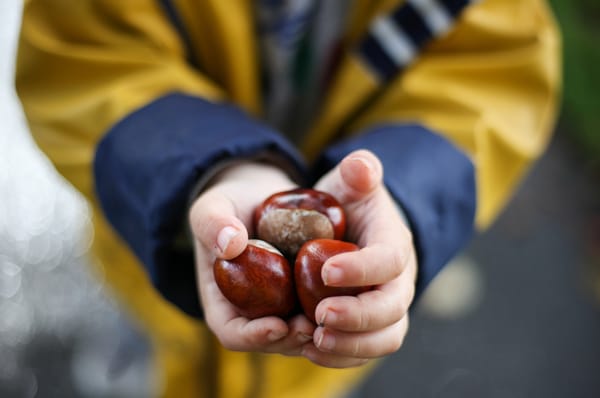Kat Soutar lives in Lincoln with her three children aged 16, 13 and 8. She is the founder of Land and Leaf Collective
“When we moved to Lincoln there weren't really any outdoor or forest school sessions so I decided to do forest school leader training.
Over the years it became so clear to me that the forest school approach has so many benefits for children and families. I wanted to increase access to forest school for children and families who couldn’t normally attend.
Alongside fee paying forest school programmes we also run programmes that are fully funded for children receiving free school meals, inclusive sessions for children with SEND and additional needs, and free sessions in areas of socioeconomic disadvantage.
Give kids space
So much learning takes place through play. In early years settings, practitioners understand the importance of creating inviting environments, which offer children the opportunity to explore the world at their own pace. They feel, listen, taste, see and smell to build up a comprehensive understanding of the world around them.
This is understood as schemas in the early years; children exploring a particular activity until they feel confident in how it works! Activities are laid out but not prescribed. Children are given the space to explore, imagine and recreate.
As children grow and enter the education system they are expected to learn in more formal ways. Ensuring children have time to play, in its purest form, means they can continue to develop and expand their sensory experiences.
As children grow the themes and emotions they explore through play tend to grow and develop with them. When children feel secure and supported this continues into early teen years.
As children transition through these years of rapid change and development the freedom to play becomes more important than ever. Many children feel the pressure to be ‘more grown up’ and move away from toys and games that have supported their development throughout childhood.
Using figures, imaginative games and team play really supports young teens to explore the changes they are experiencing whilst maintaining a strong link with the childhood they are often reluctant to leave behind.
Facilitating play
Children need time with friends in various environments, but without structured activities. As they get older ‘play’ might be taking over the kitchen to bake. As a parent it can be difficult to step back and allow the children to create without stepping in, mopping up and even taking over certain steps in the process.
Facilitate playtime with a light touch. Enjoy the time, celebrate play and create space to join them. Play is great for grown ups too!
As a parent, I find it difficult when I am invited to play by my children… “Mummy, will you play (sylvanians / running away to the wild / lottie dolls) with me?”
Often when my children play I use the time to catch up on work, on housework or chores.
I find it incredibly difficult to let go of carrying the load of family and household and switch into an imaginative and playful mindset. AND, I know how good it is for me when I do!
Family holidays, and days away, are perfect for letting go of the mundane and fully joining the children mentally and emotionally!"
MORE INSPIRATION
Follow Kat on instagram @land.and.leaf.collective or visit landandleafcollective.org



